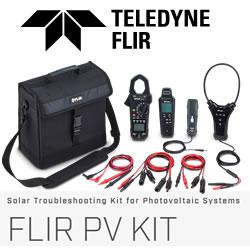What Is Green Technology?
The term "technology" refers to the application of knowledge for practical purposes. The field of "green technology" encompasses a continuously evolving group of methods and materials, from techniques for generating energy to non-toxic cleaning products.
Environmental technology or "green technology" is the application of the environmental sciences to conserve the natural environment and resources, and by curbing the negative impacts of human involvement. Sustainable development is the core of environmental technologies. When applying sustainable development as a solution for environmental issues, the solutions need to be socially equitable, economically viable, and environmentally sound.
Some environmental technologies that retain sustainable development are; recycling, water purification, sewage treatment, remediation, flue gas treatment, solid waste management, renewable energy, and others.
The term "technology" refers to the application of knowledge for practical purposes. The field of "green technology" encompasses a continuously evolving group of methods and materials, from techniques for generating energy to non toxic cleaning products.
The present expectation is that this field will bring innovation and changes in daily life of similar magnitude to the "information technology" explosion over the last two decades. In these early stages, it is impossible to predict what "green technology" may eventually encompass.
The goals that inform developments in this rapidly growing field include:
* Sustainability - meeting the needs of society in ways that can continue indefinitely into the future without damaging or depleting natural resources. In short, meeting present needs without compromising the ability of future generations to meet their own needs.
* "Cradle to cradle" design - ending the "cradle to grave" cycle of manufactured products, by creating products that can be fully reclaimed or re-used.
* Source reduction - reducing waste and pollution by changing patterns of production and consumption.
* Innovation - developing alternatives to technologies - whether fossil fuel or chemical intensive agriculture - that have been demonstrated to damage health and the environment.
* Viability - creating a center of economic activity around technologies and products that benefit the environment, speeding their implementation and creating new careers that truly protect the planet.
Green technology offers more environmentally friendly solutions than existing technology. Supporters of green technology claim that it saves money in the long-run, and that with long-term government commitment can reduce problems such as energy shortages. However, it can be difficult to assess the environmental benefits of green technology, and may also be too expensive for businesses and individuals to implement and maintain for long enough to see any savings.
Featured Product

